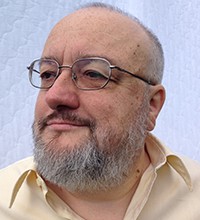Have We Reached ‘Peak Internet’? A Conversation with Neil Davies
[powerpress]
 We may have reached “Peak Internet,” Dr. Neil Davies tells HTF Founder Richard Bennett in a new interview. “We haven’t actually got a sustainable system at the moment, and the expectations on that system are going up and up.” It’s a “crisis for the world’s telecom industry, in that they are not being able to construct the returns on investment they need for the capital,” he says.
We may have reached “Peak Internet,” Dr. Neil Davies tells HTF Founder Richard Bennett in a new interview. “We haven’t actually got a sustainable system at the moment, and the expectations on that system are going up and up.” It’s a “crisis for the world’s telecom industry, in that they are not being able to construct the returns on investment they need for the capital,” he says.
Davies is the co-founder of the network consulting company Predictable Network Solutions, and an expert in resolving the practical and theoretical challenges of large scale distributed and high-performance computing. He is a computer scientist, mathematician and hands-on software developer who builds rigorously engineered working systems or scalable demonstrators of new computing and networking concepts.
Davies focuses on the scalability effects in large distributed systems, their operational quality, and how to manage their degradation gracefully under saturation and adverse operational conditions. The real question dogging the industry, Davies says, is how do you design a network to be efficient and functional into the future when the more users you ad, the harder it is to maintain network quality?
It relates to the issue of opportunity cost, Davies says: In the switched telephone network, there was a clear cost of that connection floating along a path because all the resources along that path were now associated and reserved for that data stream. “What we have found working with both regulators and actually with … the people who operate” the networks is that “the nature of the cost of carrying traffic has been lost,” Davies explains.
As more users get on a network, the quality of the network goes down, Davies says: “The best quality networks are the ones that are not used.” People think that when they buy Internet service with a certain number of megabits, they’re paying for bandwidth — but it’s “very clear” that’s not what the fungible quantity that they are truly buying, Davies says. After all, 64 kb of bandwidth could deliver a voice call – or it could deliver nothing, depending on the loss and delay characteristics. “The notion of bandwidth as the fungible quantity you’re interested in is the wrong one,” he says. “This is where Delta Q comes into the picture.”
Delta Q is fundamentally the measurement of changes in quality, Davies explains. “In one way it’s a measure of how disappointed you’re going to be,” he says. “One of the things that people don’t get about networking is that quality is actually the wrong thing; you can’t put quality into a network — like you can’t put silence into a room. So what quality is, is the absence of something: the absence of degradation.”
In Part 2 of the interview, which will be posted next week, Davies discusses the recent report he created for Ofcom.



